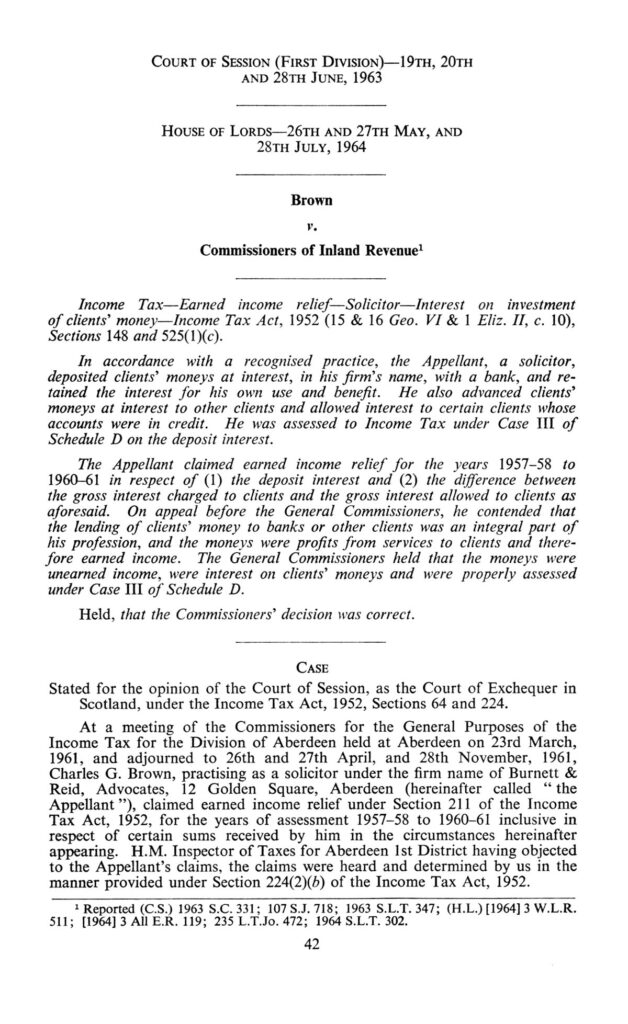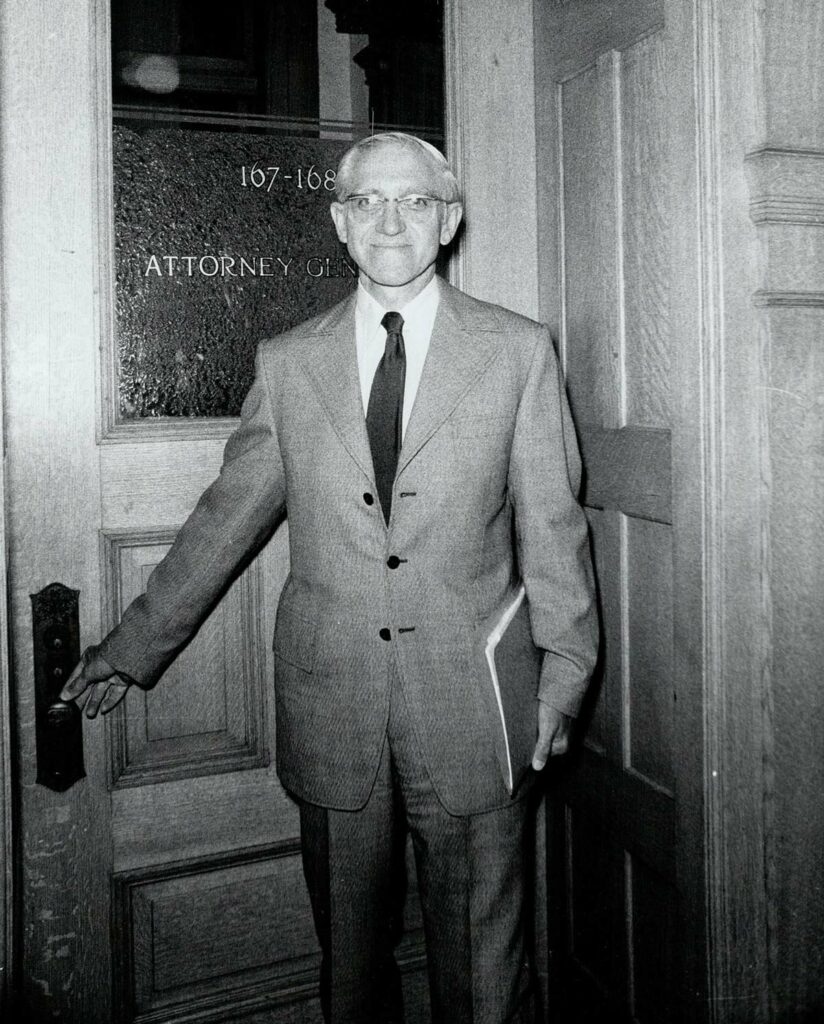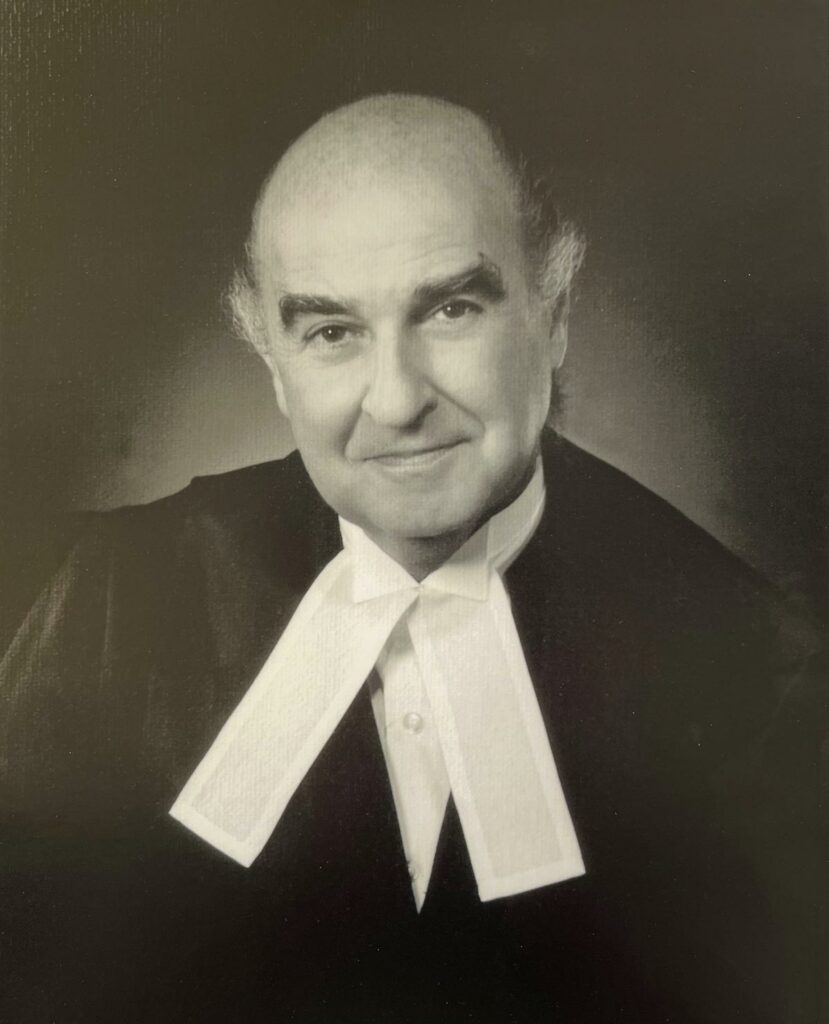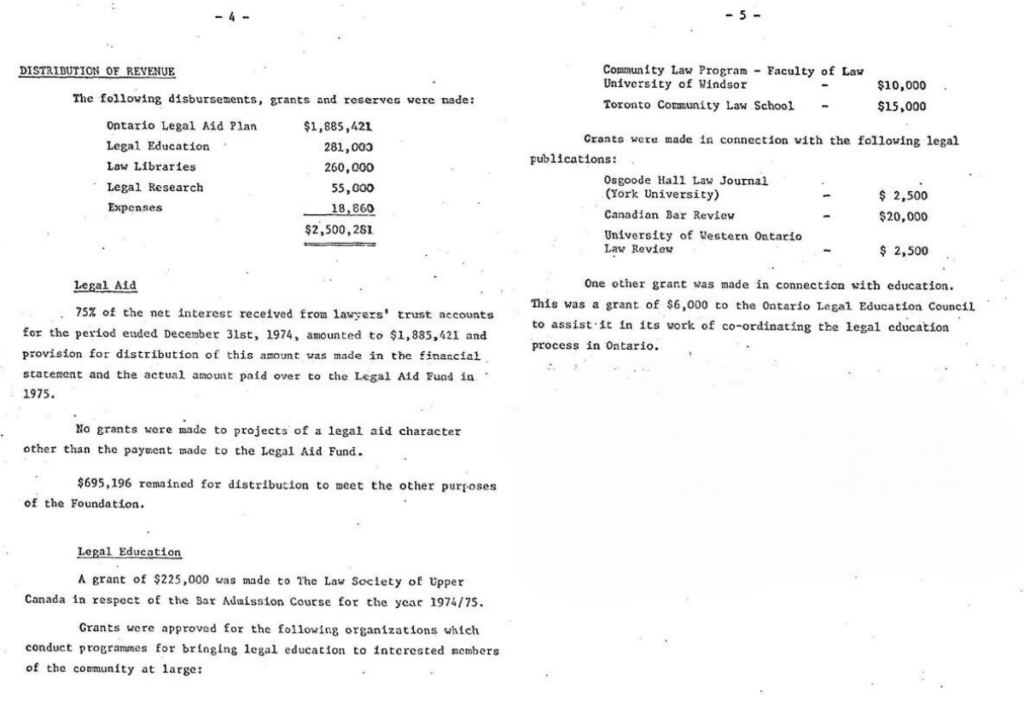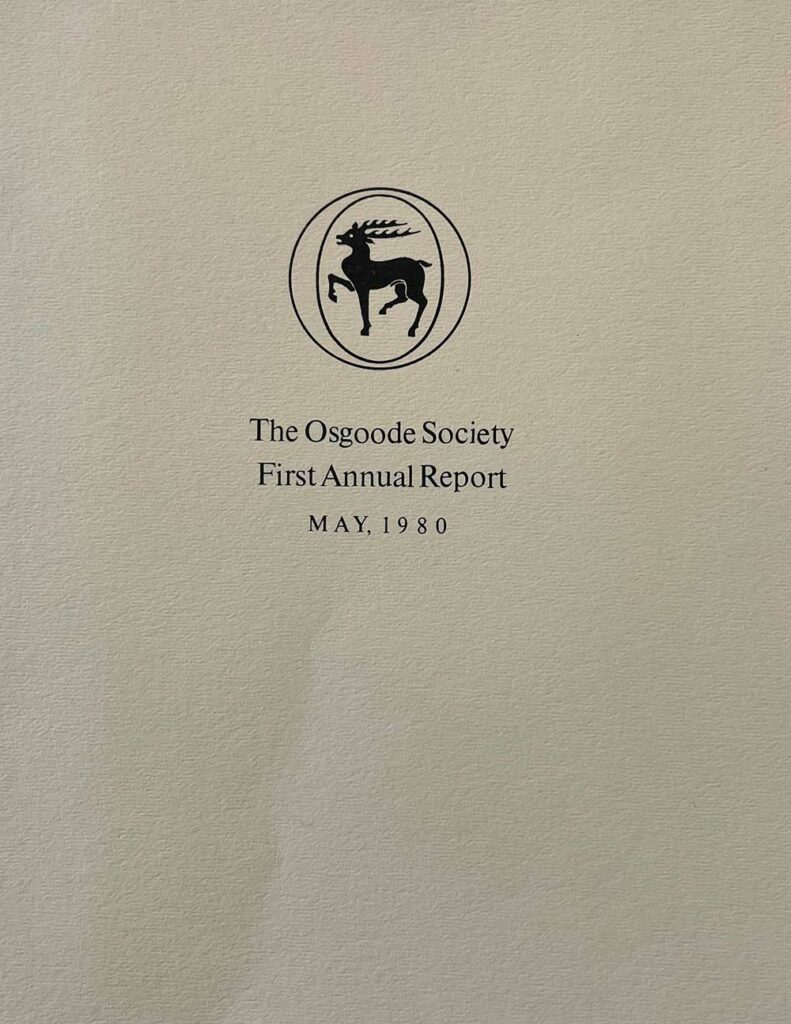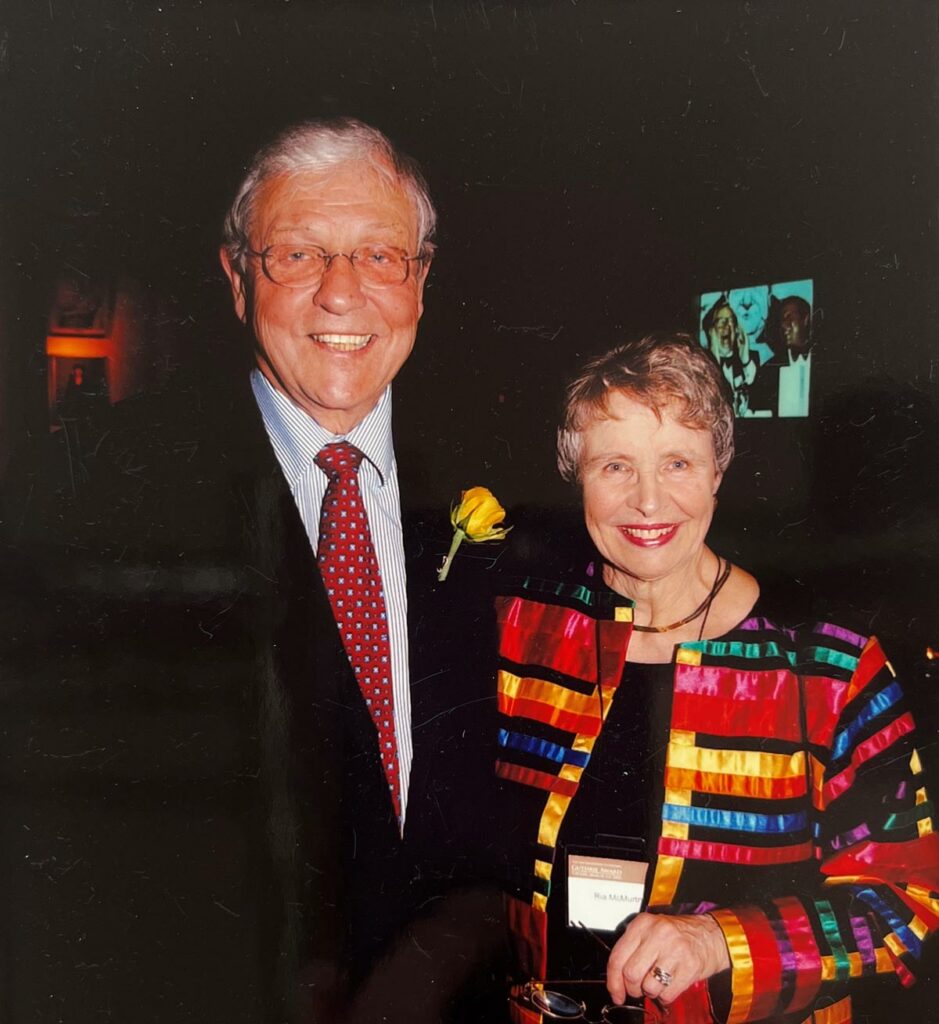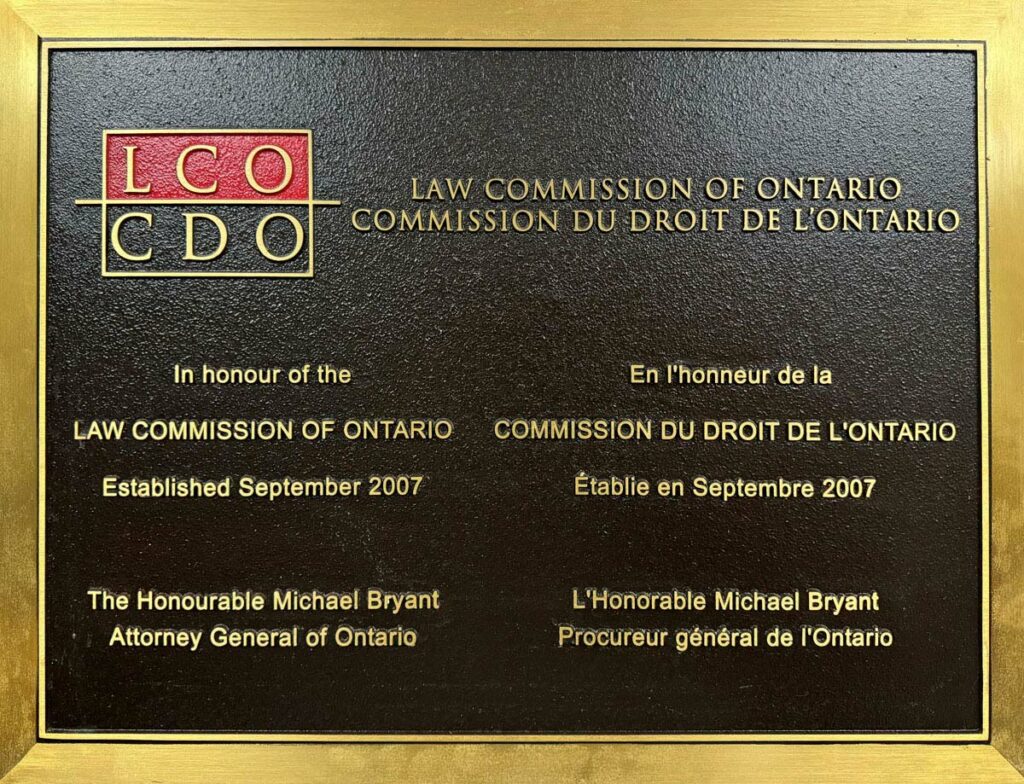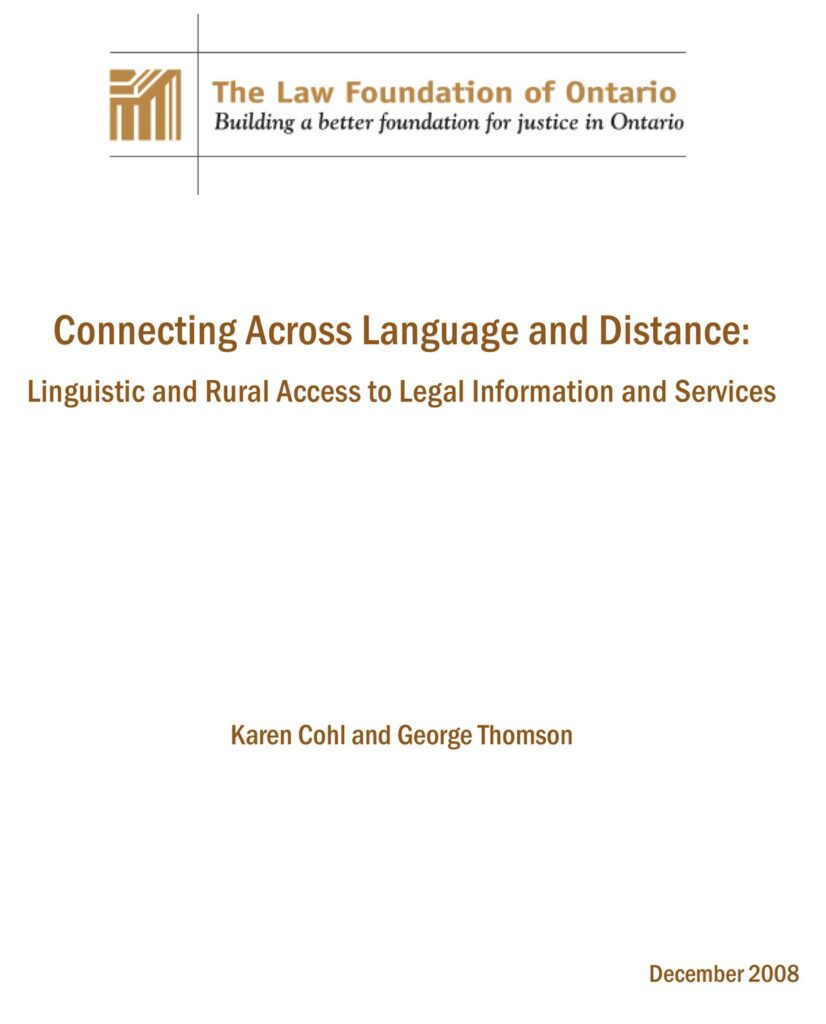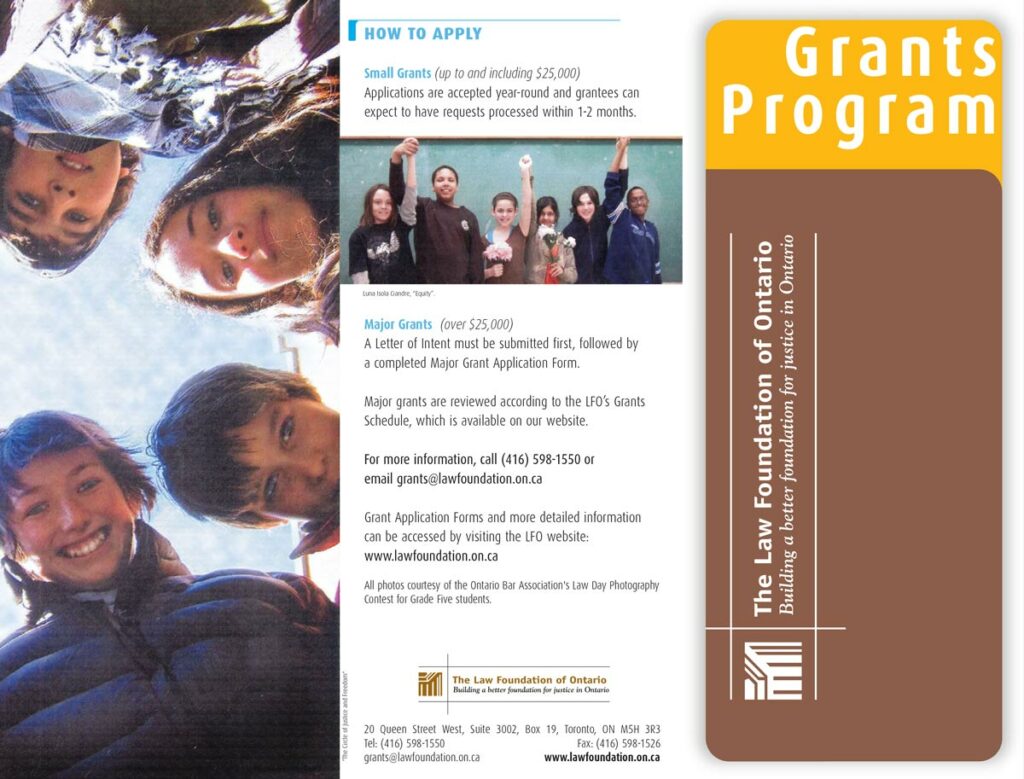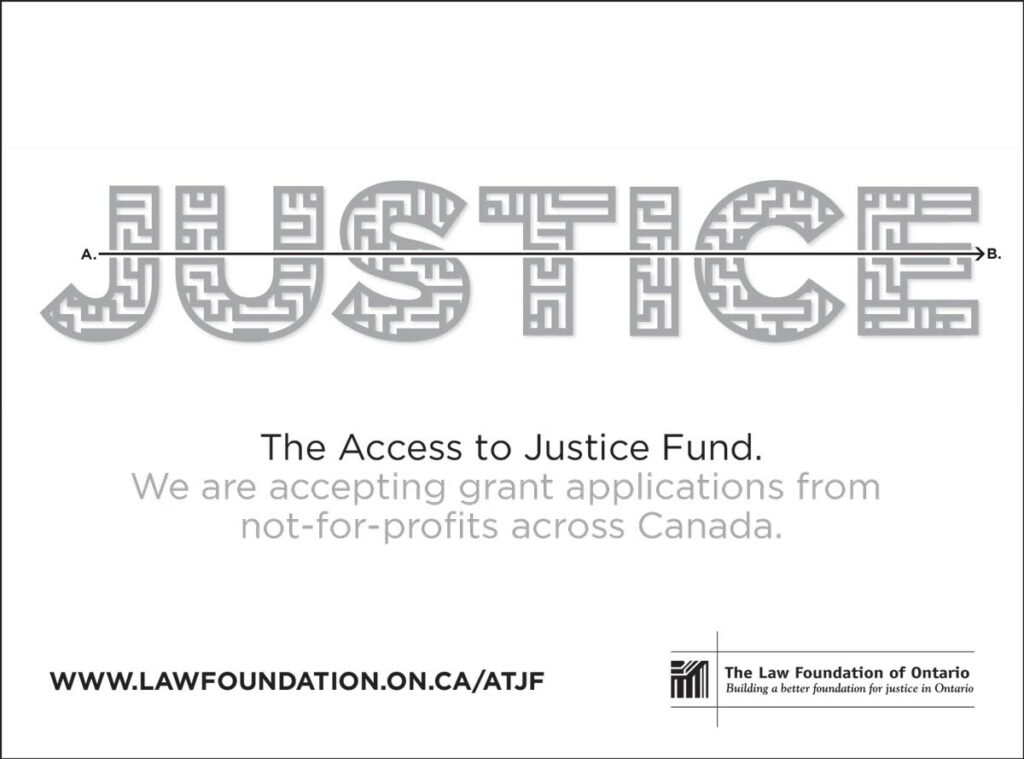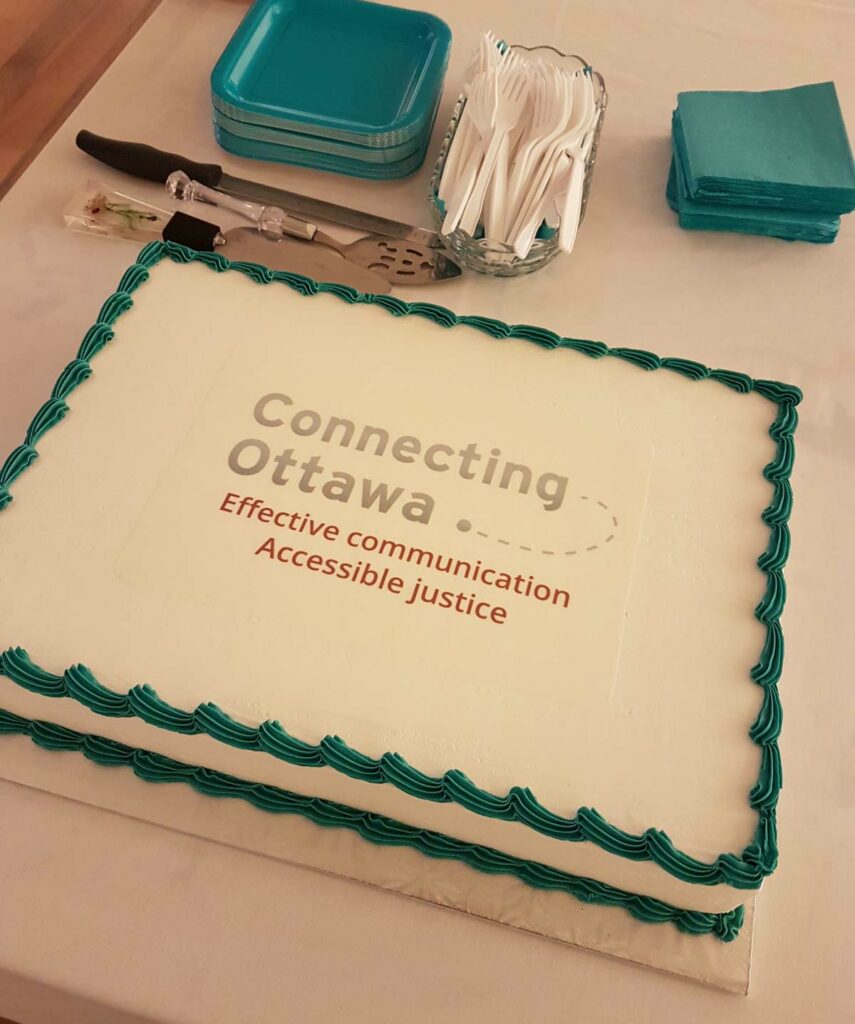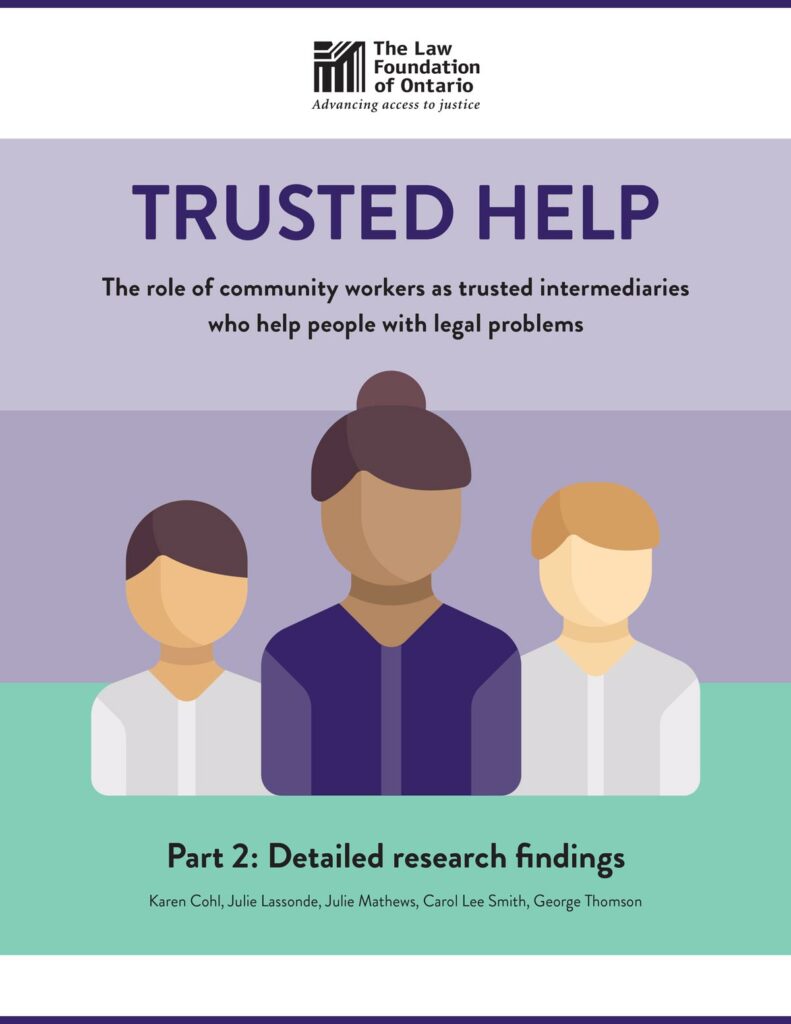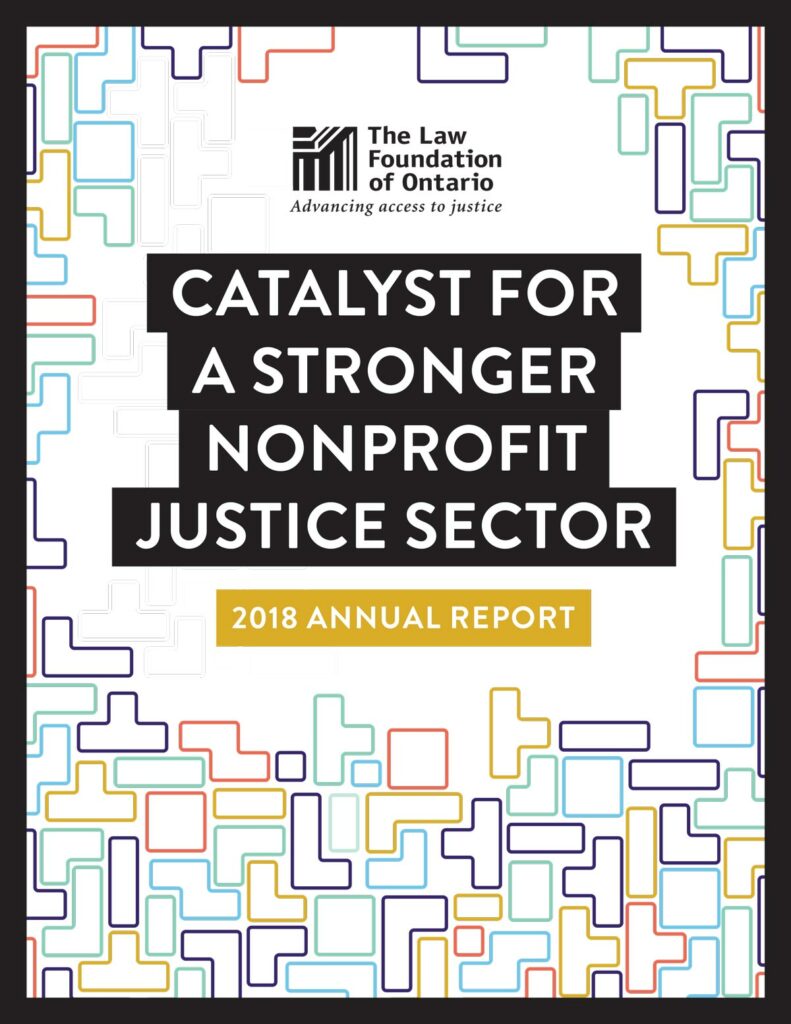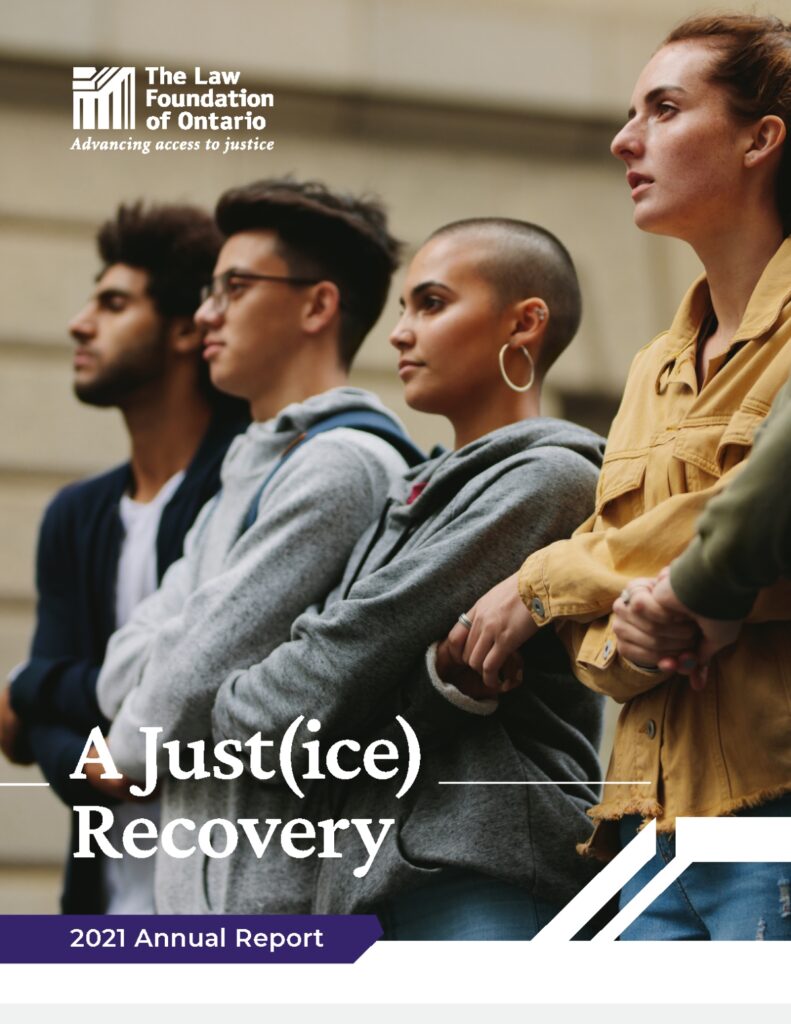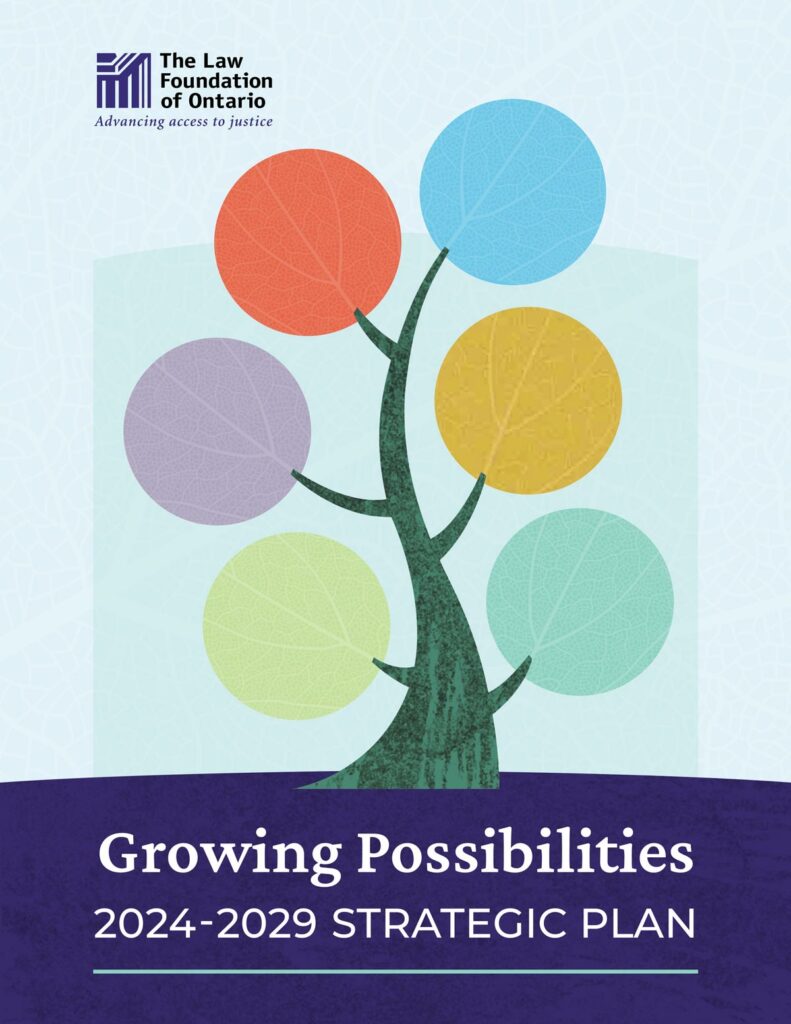The Law Foundation of Ontario was established in 1974 as an amendment to the Law Society Act. It was established to receive and use the interest on lawyers’ mixed trust accounts to support legal education, legal aid, legal research, and law libraries within Ontario.
In its early years, the bulk of the Foundation’s discretionary funding (i.e. the 25% not required by law to go to Legal Aid Ontario) went to institutions such as the Law Society of Ontario, law schools, and law libraries. Over time, the Foundation added its support to a much broader range of organizations, providing funding for innovative projects, services, and research.
The Foundation celebrated its 50th anniversary in 2024. It is a significant milestone in our access to justice journey and a fine opportunity to reflect on our first 50 years. Read From “good purpose” to Growing Possibilities.
Key milestones
New South Wales, Australia (1967) and British Columbia, Canada (1969) create law foundations to receive the interest on lawyers’ mixed trust accounts for the public good. The Law Society establishes a special committee to explore the establishment of an Ontario law foundation, and is encouraged by the County and District Law Associations that mixed trust interest should “be garnered for some good purpose”. The Attorney General, the Honourable Dalton Bales (pictured here), drafts bills to amend the Law Society Act and pave the way for an Ontario law foundation.
An amendment to the Law Society Act establishes The Law Foundation of Ontario to receive and use the interest on lawyers’ (and later paralegals’) mixed trust accounts to support legal education, legal aid, legal research, and law libraries within Ontario. The first Board of Trustees is Sydney Robins (pictured here), Chair (and past Treasurer of the Law Society), H. Donald Guthrie, W.G.C. Howland, Brendan O’Brien, and E.K. Pukacz.
The first disbursement to Ontario’s Legal Aid Plan (the pre-curser to what is now Legal Aid Ontario) and the first grants to institutional and community-based programs for legal education, law libraries, and legal research are made, all totalling $2.5M.
In collaboration with the Honourable Roy McMurtry, the Law Society, and other partners, The Osgoode Society for Canadian Legal History is established to promote the publication of work on the history of Canadian law and to create and preserve an oral history archive. We remain the Osgoode Society’s principal patron.
An amendment under the Law Society Act establishes the Class Proceedings Fund to support class action lawsuits in the public interest. The Fund is to be administered by the Foundation and governed by an independent Class Proceedings Committee. The first Committee is Anne Molloy, Chair, Stanley G. Fisher, Q.C., Jim Foulds, Michael L. McGowan, and Ann Merritt. The Foundation provides $500,000 to establish the Fund.
The Guthrie Award is created in honour of H. Donald Guthrie to recognize outstanding contributions to access to justice. H. Donald Guthrie (pictured here) was the Foundation’s longest-serving Trustee, serving 21 years, 13 as Chair. The Guthrie Medal is designed by Kenneth Jarvis, QC, RCA, a distinguished lawyer and artist and the Foundation’s Secretary from 1974 to 1980.
The 25th anniversary Millennium Fund is established to support major innovative and creative projects in support of the Foundation’s objects, benefiting the legal profession and broader community in Ontario.
With Legal Aid Ontario, the Foundation establishes Pro Bono Law Ontario (now called Pro Bono Ontario), a free legal service for Ontarians. It is the first initiative funded through the Millennium Fund.
The Ontario Justice Education Network (OJEN) is established to foster understanding of the justice system. OJEN originates from the 2000 Public Legal Education Taskforce led by three Chief Justices and in collaboration with the Foundation, government, judiciary, legal professionals, and educators.
The Public Interest Articling Fellowship is launched to encourage careers in public interest law, enhance the capacity of the nonprofit host organizations, and offer articling students valuable work experience in public interest law.
In conjunction with the Honourable Roy McMurtry’s Guthrie Award and with matching contributions from the profession, the Roy and Ria McMurtry Endowment is established. Roy and Ria McMurtry (pictured here) select the Second Chance Scholarship Foundation as the first beneficiary to support law-related education for at-risk youth.
The Law and Innovation Fund is created to identify opportunities to assist marginalized groups to learn about and act on their legal rights and to fund projects that address critical gaps and focus on issues in new or different ways.
The Community Leadership in Justice Fellowship is established to encourage partnerships and knowledge exchange between public interest organizations and academic institutions and inspire Fellows to bring new insights to their respective organizations.
In collaboration with the Ministry of the Attorney General, the Law Society, and two Ontario law schools, the Law Commission of Ontario is created to work with government, the professions, the judiciary, law faculties and students, and the public to examine issues of significant interest and importance and develop recommendations to improve the administration of the legal system and enhance access to justice.
Stemming from the Law and Innovation Fund initiative, the Connecting Across Language and Distance report (The Connecting Report) is commissioned and launched to better understand and address access to justice barriers faced by those who do not speak French or English and those who live in remote areas of the province.
Project granting is formalized and consolidated into one program and name – Responsive – and continues funding community-driven projects that fill legal gaps, supplement existing services, or otherwise help address emerging needs by connecting more people to legal information and support, especially people who are not currently being reached.
The Access to Justice Fund is created from the first cy-près award received. The Fund makes grants across Canada in priority areas and as determined by the direction of the cy-près awards. The first call for applications is made a year later in 5 areas: consumer rights, intimate partner violence, Indigenous legal needs, linguistic and rural barriers to access to justice, and supports for self-represented litigants.
Acting on the recommendations from The Connecting Report, the multi-year and multi-pronged The Connecting Project is launched. It establishes the Connecting Communities, Connecting Ottawa, Connecting Articling Fellowships, and Connecting Legal Interpretation programs.
Trusted Help: The role of community workers as trusted intermediaries who help people with legal problems report is commissioned and launched. It presents, for the first time, a detailed picture of the role and contributions of frontline community workers in Ontario and offers ways to support them in providing community-based legal information and referrals.
The Catalyst program is created to provide multi-year core funding to Ontario’s leading access to justice organizations. 20 organizations are funded in the first cohort.
Coming out of a global pandemic and in response to the pressures of the rise of both inflation and the cost of living, grants amounts are increased and new grants are made to retroactively shore up funding to existing programs including Catalyst, Public Interest Articling Fellowship, and law schools.
In part to mark our 50th anniversary, a new and ambitious 5-year strategic plan is launched: Growing Possibilities.

